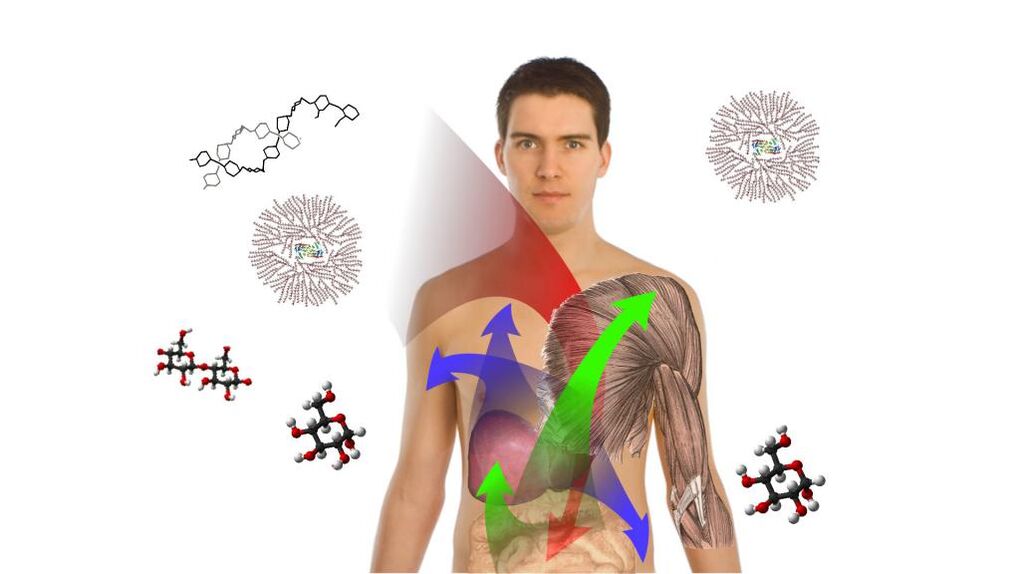
Psoriasis is a chronic dermatological disease of the skin. Psoriasis is expressed as red papules (swollen spots). In recent years, the disease has become more common in people between the ages of 20 and 30. Unfortunately, the current state of medicine cannot prevent the spread of the disease. Why does psoriasis appear, what should be the effective treatment? Let's find out in more detail.
Causes of the disease
There are many different conditions in the world for the causes of psoriasis. However, this issue has not yet been fully explored in medicine. Various theories exist, but it is still unclear where psoriasis comes from.
There are two main types of psoriasis: a hereditary factor (due to a shift in the immune system) and a so-called "late-onset type" - after 40 years (affected areas - nails and joints).
Why does psoriasis appear?
At the modern level of medicine, psoriasis is considered a failure of the body’s integrated system and not a separate disease. In addition to typical skin rashes, patients suffer from endocrine dysfunction, are nervous, and are immune.
There is no answer to the question of what causes psoriasis. There are several typical theories about psoriasis. Let's wait for each one in more detail.
Immune theory
Immune theory is recognized by many doctors around the world. According to this theory, psoriasis occurs due to a dysfunction of the body's immune system. What causes the psoriasis body? As a result of autoimmune aggression, typical papules (bright red spots) appear. The immune system perceives skin cells as foreign, so it gradually rejects them. In their place, characteristic papules appear.
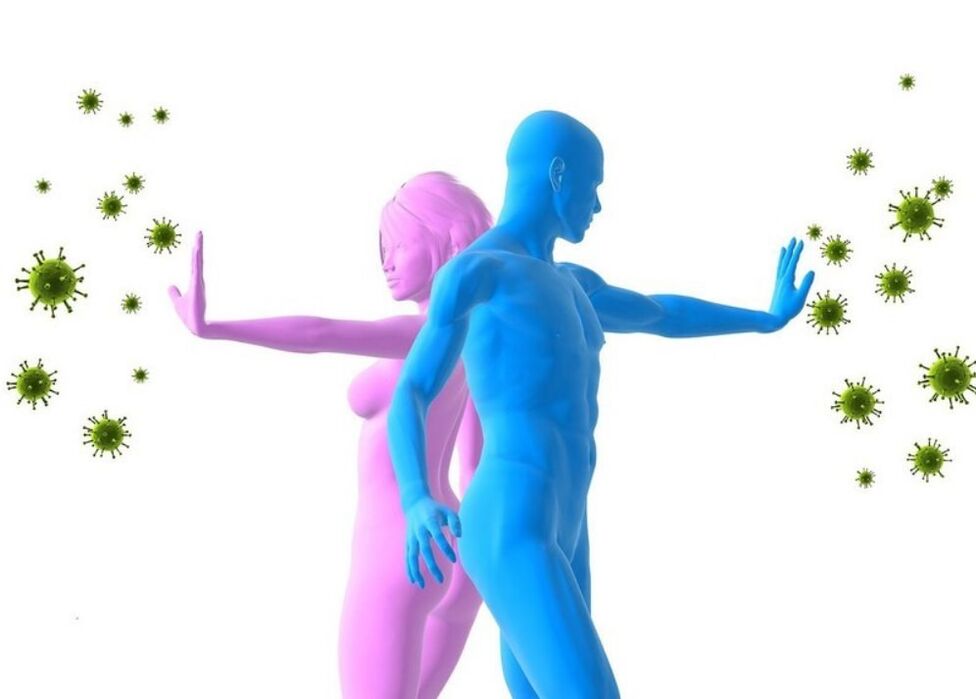
Doctors have long found that psoriasis can develop in the background of ongoing infectious diseases: sinusitis, tonsillitis. This theory has a right to dictate because dysfunction of the immune system provokes psoriasis. In studying the papule balance, the scientists found that they contained antigen complexes that were not characteristic of healthy cells. These complexes contain antibodies in the blood, so rejection occurs - papules are formed.
Low immunity is a fertile soil for the development of psoriasis.
At the genetic level
Unfortunately, psoriasis can be inherited. It should not be forgotten that it is not the disease that spreads at the gene level, but the tendency to do so. This fact is also confirmed by direct statistics: 60% of patients with psoriasis have blood relatives with the same diagnosis.

If one parent is sick with this disease, the child has a 25% chance of developing psoriasis. If both parents have psoriasis, the risk increases to 75%.
Scientists have shown that the disease is directly linked to the chromosomal region, which determines the level of inflammatory response in the skin. However, genetic predisposition cannot be considered the main cause of psoriasis.
Some people are resistant to psoriasis. Among them are the Indians who live in the Andes, the Eskimos. These peoples have genetic traits that make their representatives never suffer from psoriasis.
Endocrine theory
What causes psoriasis in adults? According to endocrine theory, psoriasis can result from hormonal dysfunction. This theory was raised by doctors after careful analysis of the course of the disease. Overproduction of skin cells is thought to disrupt the body’s regulatory function. Accordingly, due to dysfunction of the endocrine system.
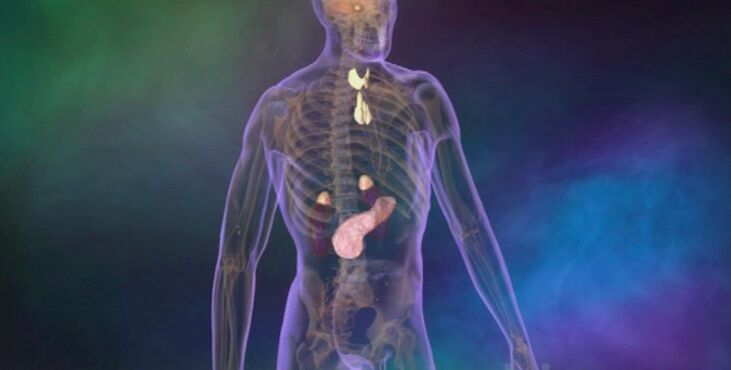
During female hormonal surges (ovulation and menstruation) and pregnancy, psoriasis is activated. However, scientists have so far not identified a hormone that affects the appearance of psoriasis. This is why endocrine theory cannot be said to be fundamental.
Neurogenic theory
Neurogenic theory is considered one of the most recent. According to him, psoriasis originates "from the nerves", resp. Psychological factors are to blame. Psoriasis (neurosis) triggers neurosis. As a result of the neurosis, the blood vessels constrict, the blood supply to the skin weakens, and papules form.
Therefore, not in vain do all the people in the neighborhood answer the question of what causes psoriasis, they immediately answer that it comes from the nerves.
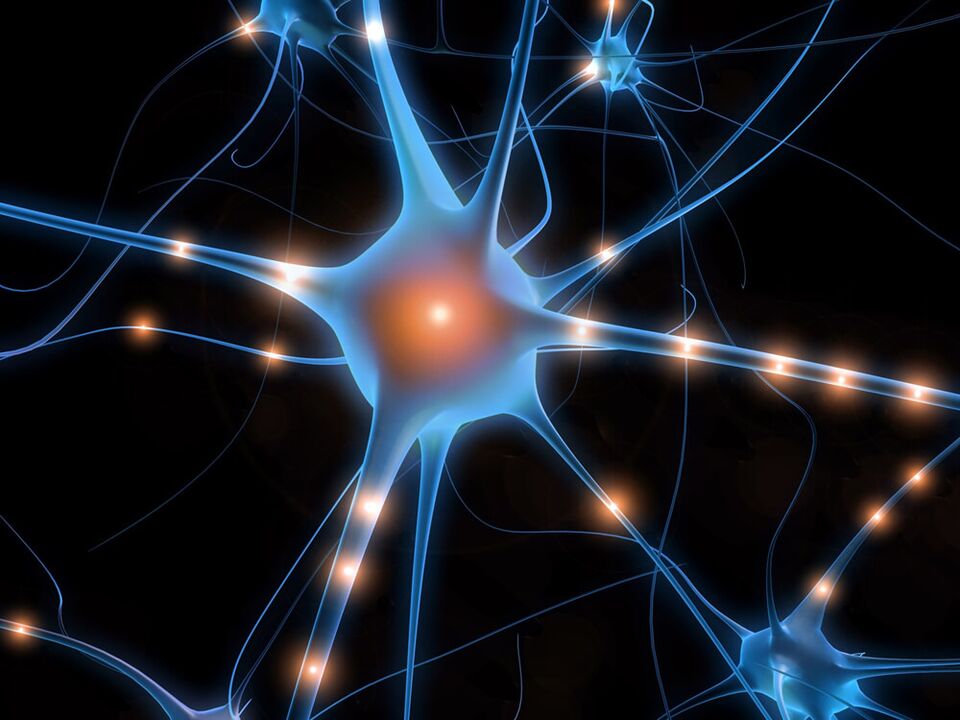
According to several studies, it becomes clear that stress, deep internal experiences, nerve shocks are the stimuli for the appearance of skin rashes.
Virus theory
There is also a virus theory. Within this framework, doctors argue that psoriasis may appear as a result of the infection. In fact, during infectious diseases, papules appear more often and lymph nodes grow. However, some doctors generally attribute such changes to a weakened immune system.
No specific pathogen has been identified in the entire history of the disease that would provoke the appearance and development of psoriasis.
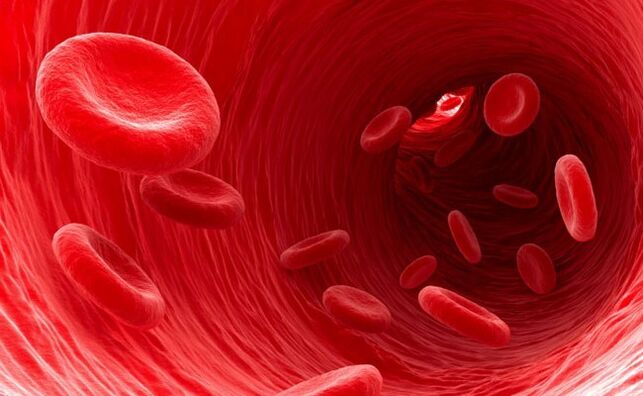
Psoriasis is a disease that does not spread through contact. No cases of infection have been reported with this disease, even if a blood transfusion has been performed from the infected person to the patient.
Disorders of metabolic processes
During psoriasis, many patients have low fever, high cholesterol, and poor metabolism of vitamins, carbohydrates, and trace elements. All this indicates signs of metabolic disorders in the body.
As a result of a re-examination of patients with psoriasis, doctors concluded that one of the reasons for the onset of the disease was a violation of metabolic processes.
Factors causing the appearance of psoriasis
In order to understand exactly what causes the development of psoriasis, it is necessary to outline the range of factors that cause its appearance. The strongest factors are:
- stress, negative emotions, mental trauma, emotional and physical fatigue are fertile ground for recurrence of psoriasis;
- infectious diseases, vaccination;
- hormonal changes in the body (during puberty, pregnancy, breastfeeding);
- physical injury: scratches, burns, bites, freezing;
- taking certain medications: antibiotics, vitamin complexes, immunostimulants;
- malnutrition (plenty of sweet, fatty, fried and alcohol in the diet);
- when the climate changes (unfavorable conditions - humid climate, sudden temperature changes);
- in the presence of other dermatological diseases: dermatitis, fungus.
The cause of psoriasis can be one of the factors. Therefore, the patient with the disease should minimize the manifestation of the above external factors that influence relapse.
The main symptoms
Psoriasis can occur at any age, including children. Moreover, the earlier the disease appears, the more accurately it passes through an advanced stage.
How does psoriasis appear, the photos below show: rash, cracks, papules form on the surface of the skin (red spots with white scales).
The first signs of psoriasis are:
- cracks and pustular rashes on the skin;
- the nail plate peels off;
- blisters appear on the palms and legs;
- the skin is heavily exfoliated;
- itching in the area of papules.
As the disease progresses, the number of papules increases to 10 cm In the affected areas, the skin is sensitive, but the hair remains.
There are different forms of psoriasis:
- simple - spreads on the skin of the legs (on the stretching surface of the knees), the papules are covered with white scales;
- seborrheic psoriasis usually occurs in people who also suffer from seborrhea; this disease is characterized by the appearance of yellow papules which adhere to the sebum, do not correspond to the inflammatory process, and are located mainly in the scalp, behind the ears and on the face;
- arthropathic psoriasis - papules appear at the joints, legs and hands, so the disease interferes with their normal mobility;
- inverse - papules are localized in the natural folds of the body, often this form of the disease is adjacent to problems with the body's endocrine system;
- teardrop psoriasis may appear on the head, from which such a form of psoriasis appears - it is not certain
- in the psoriasis of the nails - the disease occurs only on the nail plates - they thicken and deform, the nails affected by the disease appear like a bird's beak;
- erythroderma psoriasis is an extremely severe form of psoriasis characterized by plaque fusion; if the patient’s case is neglected, the plaque can cover the entire body. As accompanying manifestations: swelling, peeling, redness, severe itching and extreme malaise.
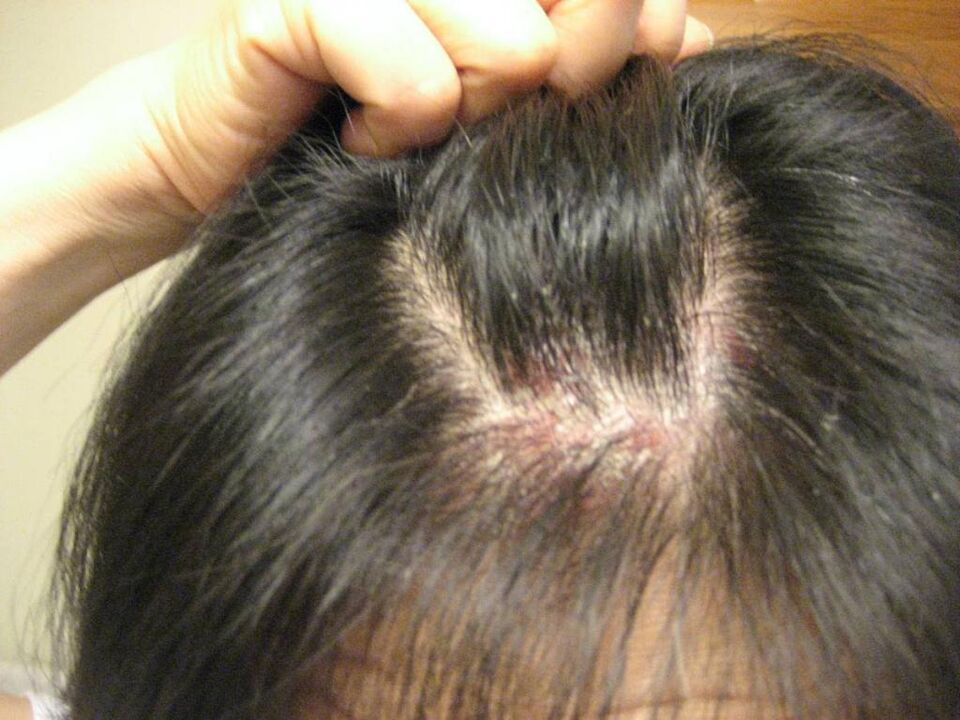
What causes a psoriasis hand? The reasons are purely individual.
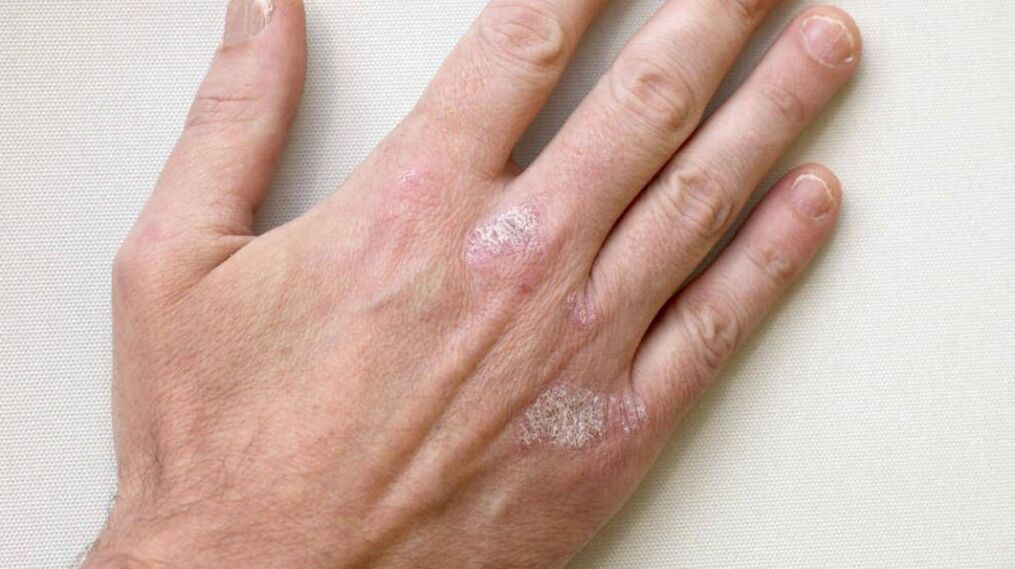
There are various factors and theories that have not been fully proven. However, many doctors agree that the causes of psoriasis can be hidden in disorders of the immune system, nervous system, and endocrine system.
Stages of psorysmr
Psoriasis has three stages:
- Progressive stage - bright red rash characterized by a possible increase in volume. If you do not take treatment in time, the disease will progress.
- Stationary stage - new papules do not appear and those that are on the skin have stopped.
- Regressive stage - the papules will noticeably fade, the size will decrease, the peeling will be less or it will stop completely.
Proper dermatologist consultation is required to properly diagnose and determine the stage of psoriasis. With the help of visual examination, laboratory tests and microscopy, you will be able to make an accurate diagnosis and determine the existing stage.
Psoriasis has appeared: what to do?
Psoriasis is a complex disease that takes a long time to treat. Relapses often occur even after prolonged remission of the disease. The main goal of the treatment is to eliminate the rash. Therefore, it is necessary to prescribe treatment individually, relying on the development of the disease, concomitant symptoms, and relapses.
External and internal therapies are distinguished among the main methods of treatment.
External treatments for psoriasis:
- ointment on solid, lanolin and greasy bases;
- pine tar;
- naphthalene;
- mustard ointment;
- hormonal ointments (usually prescribed by a doctor in the progressive stage of the disease).
Internal remedies:
- vitamin complex;
- sedatives;
- sedative, neuroleptic;
- hypnotic;
- antidepressant;
- antibacterial and anti-inflammatory drugs;
- metabolic stimulant;
- immunopharmaceutical.
In addition to medication, the patient should remove sweet, fried, spicy, smoked foods from the diet. Do not eat ice cream, coffee, carbonated drinks, mushrooms or pickled foods.
Psoriasis is a chronic disease that does not spread through contact. The causes and factors of the appearance of psoriasis are striking in their diversity, so almost all people can be at risk. Therefore, you need to pay attention to your own health and strengthen your immune system. Avoid stressful situations and nervous strain! Think first and imagine how stress can develop in the future. To be healthy!























